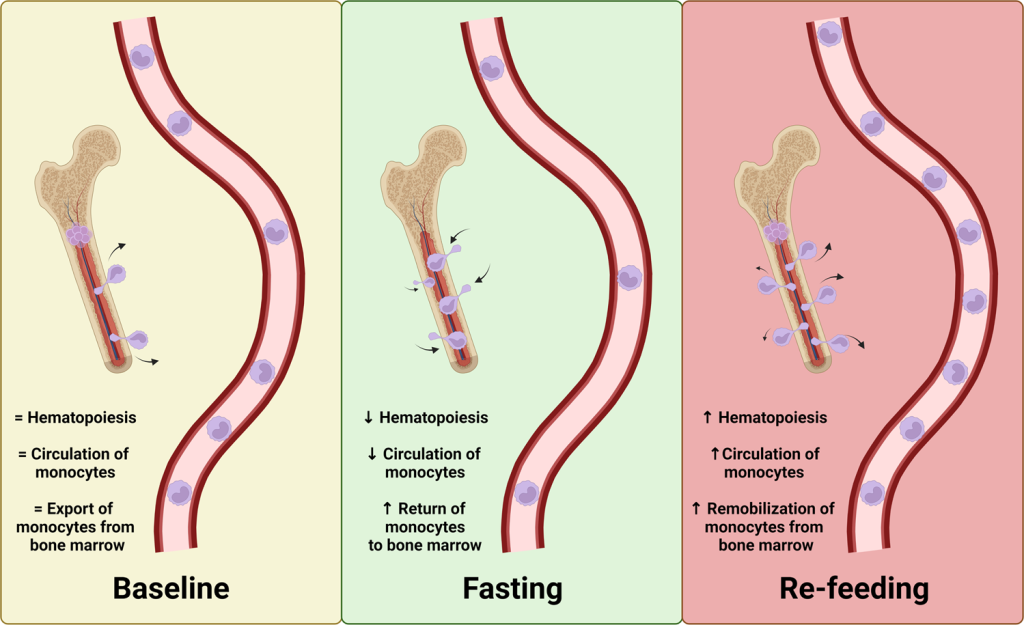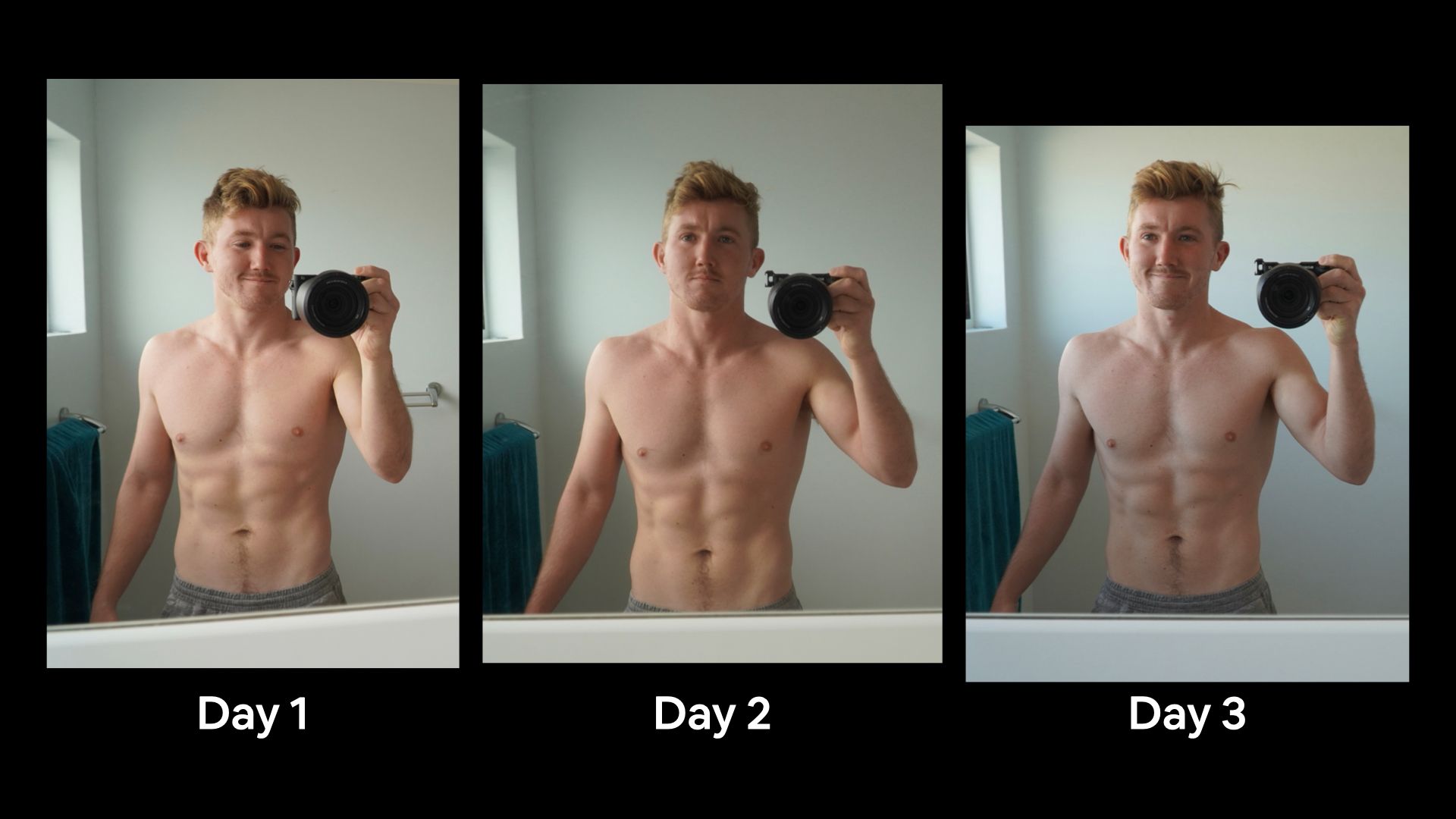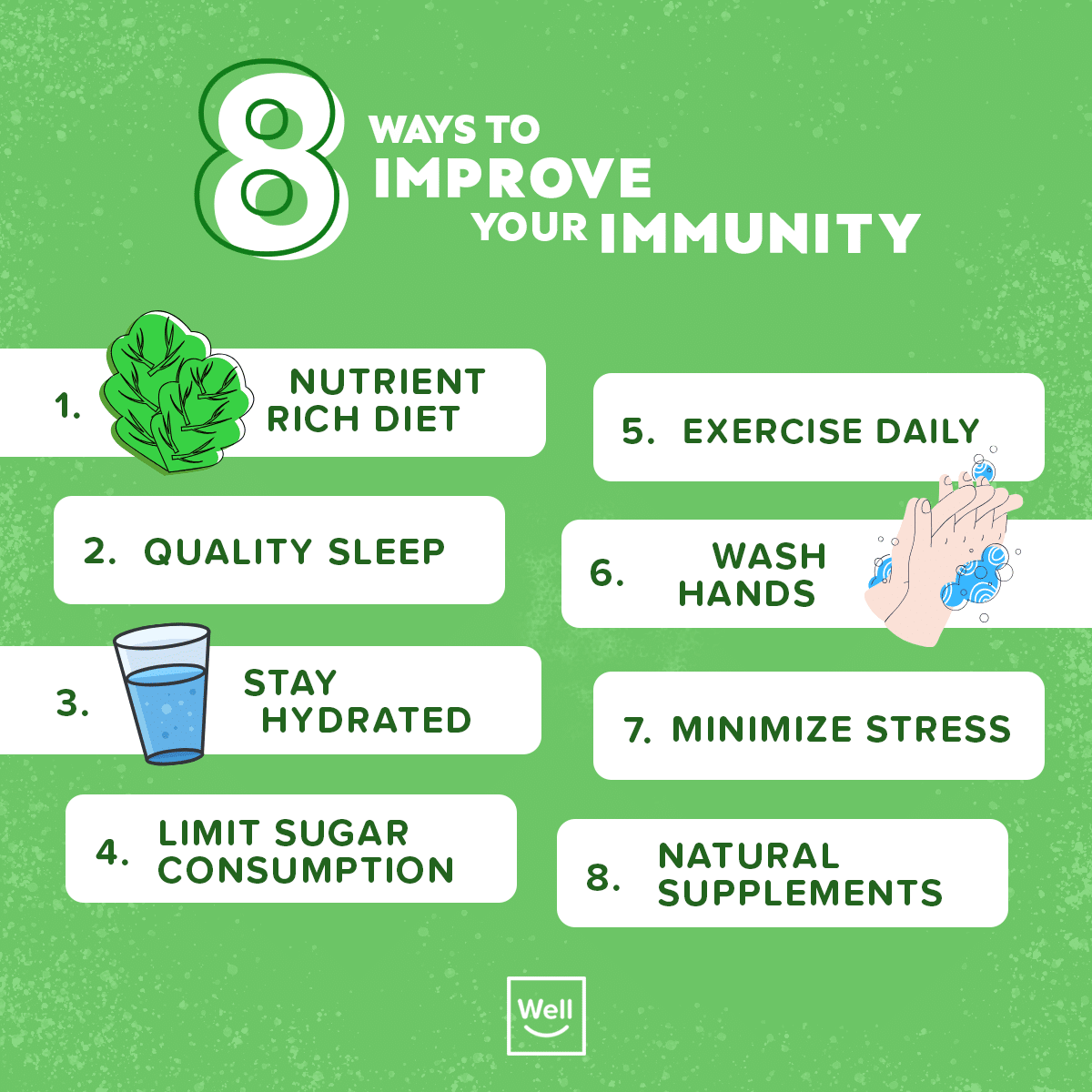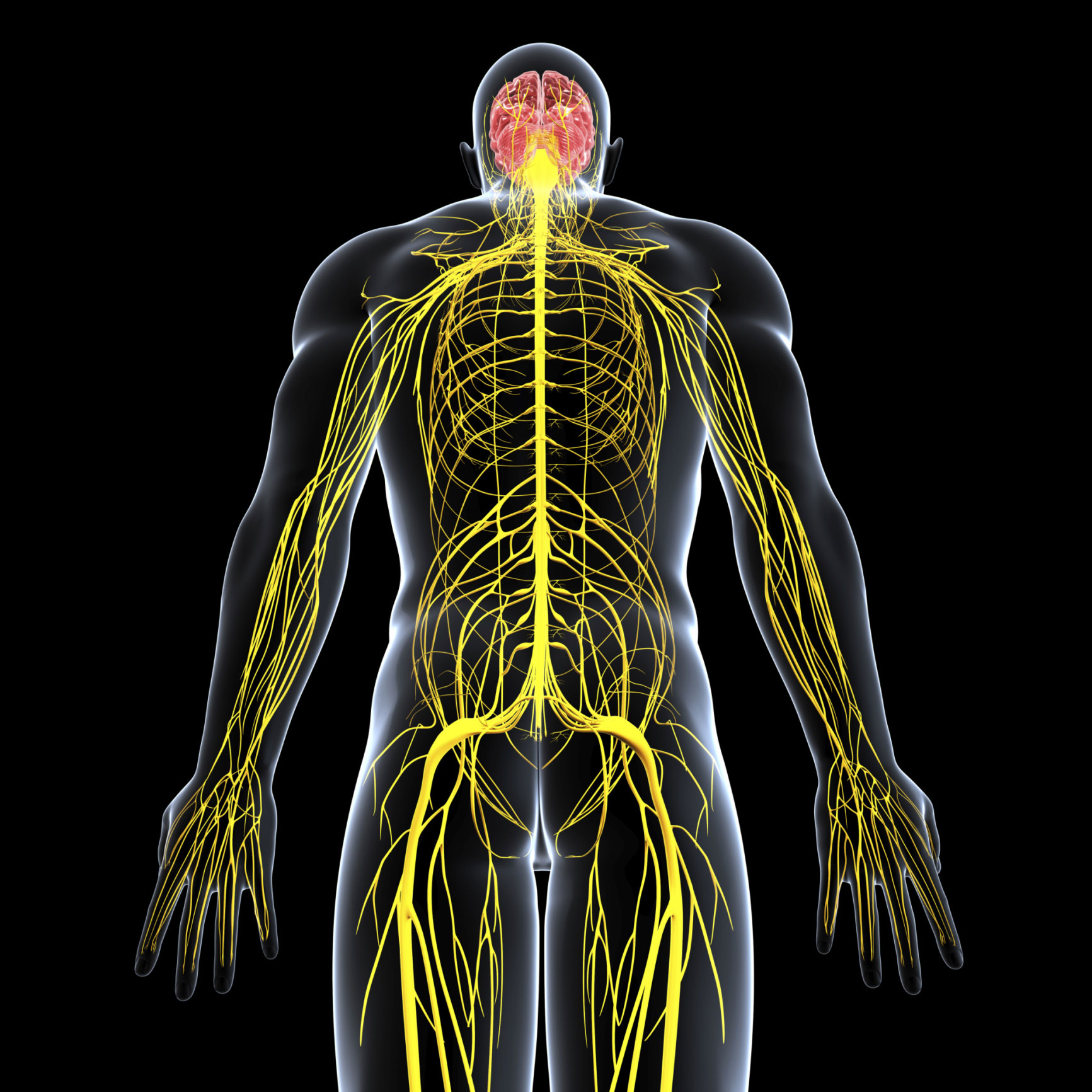Does a 3 day fast reset the immune system

Does fasting for three days have the power to revitalize your immune system, like a software update for your body's defense mechanism? Scientists and health enthusiasts have been exploring this question, investigating the potential of short-term fasting to rejuvenate the immune system and enhance its ability to combat infections and diseases. Join us as we delve into the fascinating realm of fasting and its potential impact on our body's defense system.
Does a 3-Day Fast Reset the Immune System?
The question of whether a 3-day fast can reset the immune system is complex and doesn't have a simple yes or no answer. While some research suggests potential benefits, it's crucial to understand the nuances and limitations of such claims. A 3-day fast can induce various physiological changes, some of which might indirectly influence immune function. However, it's inaccurate to characterize it as a complete "reset." The immune system is a highly intricate network, and its regulation involves many factors beyond simple caloric restriction.
What Happens to the Immune System During Fasting?
During a fast, your body undergoes significant metabolic shifts. Initially, it utilizes stored glycogen for energy. As glycogen depletes, the body switches to using stored fat, a process called ketosis. This metabolic shift can influence inflammation, a key aspect of immune regulation. Some studies suggest that fasting may reduce markers of chronic inflammation, potentially benefiting individuals with inflammatory conditions. However, the acute inflammatory response (your body's immediate reaction to infection) may not be significantly affected by a short fast, and might even be suppressed, increasing susceptibility to infection if the body is already weakened.
Autophagy and Immune Cell Turnover
Fasting triggers autophagy, a cellular process where the body breaks down and recycles damaged components, including dysfunctional cells. This includes immune cells. This process can potentially remove old or damaged immune cells, potentially improving overall immune function. However, the extent to which a 3-day fast influences autophagy and subsequent immune cell renewal is still under investigation and may vary significantly between individuals based on factors like health status and genetics. More research is needed to definitively establish this link.
The Role of Inflammation in Immunity
Chronic low-grade inflammation is linked to various diseases, including heart disease, type 2 diabetes, and certain cancers. While a 3-day fast might reduce inflammatory markers in some studies, it's important to note that inflammation is a double-edged sword. While chronic inflammation is harmful, acute inflammation is essential for fighting off infections. Therefore, a drastic reduction in inflammation from fasting, might, in certain contexts, compromise the body's ability to fight off immediate threats.
Potential Risks of Prolonged Fasting
While short-term fasting, like a 3-day fast, is generally considered safe for healthy individuals, prolonged fasting can carry risks. It can weaken the immune system, making you more susceptible to infections. It can also lead to nutrient deficiencies, muscle loss, and electrolyte imbalances if not carefully managed. Consult your doctor before undertaking any extended fasting regimen, especially if you have underlying health conditions.
Individual Variability and the Need for More Research
The impact of fasting on the immune system is highly individual-specific. Factors such as age, overall health, genetics, and the duration and type of fasting all play a role. More rigorous scientific studies are needed to understand the precise mechanisms and long-term effects of fasting on the immune system, particularly in different populations. Current evidence is largely observational and doesn't provide definitive answers regarding a complete "reset."
| Factor | Effect on Immune System (3-day fast) | Notes |
|---|---|---|
| Inflammation | May reduce chronic inflammation; may temporarily suppress acute inflammation | Effect varies greatly among individuals |
| Autophagy | Potentially improves by removing damaged immune cells | Extent of effect needs further research |
| Immune Cell Turnover | May increase, potentially improving function | More research needed to confirm |
| Nutrient Deficiency | Potential risk with longer fasts | Essential to maintain electrolyte balance |
| Susceptibility to Infection | Potentially increased due to immune suppression | Consult a doctor before fasting |
What do 3 days of fasting do to the body?

What happens to your body during a 3-day fast is a complex process involving multiple physiological changes. The effects are multifaceted and depend on several factors including your initial health status, body composition, and the type of fast undertaken (water-only, etc.). It's crucial to understand that prolonged fasting should only be undertaken under the supervision of a healthcare professional, as it can have significant effects.
Metabolic Shifts
During a 3-day fast, your body undergoes a significant metabolic shift. Your primary energy source transitions from glucose (derived from carbohydrates) to fat. This process, known as ketogenesis, leads to the production of ketone bodies, which become the primary fuel source for the brain and other tissues. This shift can lead to decreased appetite and increased energy levels for some individuals, while others may experience fatigue and headaches.
- Increased ketone body production: Ketones replace glucose as the primary fuel source.
- Decreased insulin levels: Insulin, a hormone that stores glucose, decreases significantly.
- Increased glucagon levels: Glucagon, a hormone that promotes the breakdown of stored fat, increases.
Cellular Autophagy
Fasting triggers autophagy, a cellular self-cleaning process where the body recycles and removes damaged cells and cellular components. This process is thought to play a role in various health benefits attributed to fasting, such as reduced inflammation and improved cellular function. However, the exact mechanisms and extent of autophagy during a 3-day fast are still being researched.
- Removal of damaged organelles: Autophagy helps clear out damaged mitochondria and other cellular components.
- Reduced inflammation: By removing damaged cells, autophagy can decrease inflammation.
- Potential for improved cellular function: The removal of damaged components allows for the generation of healthier cells.
Hormonal Changes
A 3-day fast causes substantial changes in various hormones. As mentioned earlier, insulin levels drop significantly, while levels of glucagon, growth hormone, and norepinephrine (a stress hormone) tend to rise. These hormonal shifts can affect metabolism, appetite, and energy levels. The interaction of these hormones during fasting is complex and impacts different bodily systems.
- Reduced insulin: Leads to decreased glucose storage and increased fat breakdown.
- Increased glucagon: Promotes the breakdown of glycogen (stored glucose) and fat.
- Increased growth hormone: Plays a role in muscle preservation and fat breakdown.
Effects on the Gut Microbiome
Emerging research suggests that fasting can alter the composition and activity of the gut microbiome. While the specific effects of a 3-day fast on the gut microbiome are still being investigated, some studies indicate potential changes in the abundance of certain bacterial species. The long-term implications of these changes are unclear and require further research.
- Changes in bacterial species abundance: Fasting can lead to shifts in the proportions of different bacterial species.
- Potential impact on gut health: The long-term effects of these microbiome alterations on gut health are not fully understood.
- Influence on metabolism and immunity: Gut microbiome composition influences various metabolic and immune processes.
Potential Risks and Side Effects
It's important to acknowledge the potential risks and side effects associated with a 3-day fast. These can include headaches, fatigue, dizziness, weakness, constipation, irritability, and difficulty concentrating. Individuals with underlying health conditions should consult their physician before attempting a fast, as it could exacerbate existing problems. The severity of side effects varies depending on the individual and the type of fast.
- Headaches and dizziness: Common side effects due to the shift in energy sources.
- Fatigue and weakness: Can result from reduced caloric intake.
- Electrolyte imbalances: Prolonged fasting can lead to dangerous electrolyte imbalances.
How can I boost my immune system in 3 days?

You can't significantly boost your immune system in just 3 days. Immune system function is complex and long-term. While you can't magically strengthen it overnight, you can take steps to support its existing capabilities and potentially reduce your susceptibility to illness. These actions are best viewed as short-term supportive measures, not a quick fix for a weakened immune system.
Here's how you can support your immune system in three days, focusing on optimizing existing function rather than rapid enhancement:
Prioritize Sleep and Rest
Adequate sleep is crucial for immune function. When you sleep, your body releases cytokines, which are proteins that help your cells communicate and coordinate immune responses. Aim for 7-9 hours of quality sleep each night. Lack of sleep weakens your immune response, making you more vulnerable to illness.
- Establish a regular sleep schedule, going to bed and waking up around the same time each day, even on weekends.
- Create a relaxing bedtime routine to help you wind down before sleep (e.g., warm bath, reading).
- Make sure your bedroom is dark, quiet, and cool.
Hydrate Consistently
Dehydration can impair immune function. Water helps flush out toxins and transports immune cells throughout your body. Ensure you drink plenty of fluids throughout the day. Avoid excessive caffeine and alcohol, as they can dehydrate you.
- Carry a water bottle with you and refill it regularly.
- Drink water before, during, and after physical activity.
- Eat fruits and vegetables with high water content (e.g., watermelon, cucumbers).
Nourish Your Body with Nutrient-Rich Foods
Proper nutrition is essential for immune support. Focus on consuming foods rich in vitamins, minerals, and antioxidants. While you can't make drastic changes in 3 days, prioritizing nutrient-dense choices can help. Avoid processed foods, excessive sugar, and saturated fats.
- Eat plenty of fruits and vegetables, aiming for a variety of colors.
- Include sources of protein, such as lean meats, fish, beans, and lentils.
- Choose whole grains over refined grains.
Manage Stress Levels
Chronic stress weakens the immune system. While you can't eliminate stress in three days, you can practice stress-reduction techniques to mitigate its negative impact. Even short bursts of relaxation can help.
- Practice deep breathing exercises.
- Engage in mindfulness meditation or yoga.
- Listen to calming music.
Maintain Hygiene Practices
Good hygiene is crucial in preventing infection. This is perhaps the most effective short-term strategy to protect yourself from illness. Focus on preventing the spread of germs.
- Wash your hands frequently with soap and water for at least 20 seconds.
- Avoid touching your face, especially your eyes, nose, and mouth.
- Clean and disinfect frequently touched surfaces.
How long do you need to fast for cell regeneration?

There's no single definitive answer to how long you need to fast for cell regeneration. The process of cellular regeneration is complex and influenced by many factors, not just fasting duration. While fasting can trigger cellular repair and regeneration processes, it's not a simple case of longer fast equals more regeneration. The benefits and effects vary greatly depending on individual factors like age, health status, underlying conditions, and the type of fast undertaken (water-only, intermittent, etc.). Scientific research is still ongoing and hasn't established a specific fasting duration for optimal cell regeneration in humans. Overly prolonged fasting can also be detrimental to health.
What triggers cellular regeneration during fasting?
Fasting initiates a cascade of cellular processes that can promote regeneration. The body shifts from primarily using glucose for energy to utilizing stored fats through a process called autophagy. Autophagy is a cellular "self-cleaning" process where damaged or dysfunctional cells are broken down and recycled, making way for new, healthier cells. This process is crucial for cellular renewal and overall health. Furthermore, fasting can also influence other regenerative pathways, such as those involving stem cells.
- Autophagy: The primary cellular mechanism responsible for the removal of damaged components.
- Stem Cell Activity: Fasting may stimulate the production and activity of stem cells, which are crucial for tissue repair and regeneration.
- Reduced Inflammation: Fasting can have anti-inflammatory effects, creating a more favorable environment for cellular repair.
The role of different fasting methods
The type of fasting employed significantly impacts its effects. Intermittent fasting (IF), where you cycle between periods of eating and voluntary fasting, is often studied for its potential benefits. Extended water-only fasts are generally not recommended for prolonged periods without medical supervision due to potential health risks. The duration and frequency of fasting periods in IF protocols vary considerably, making it difficult to pinpoint an optimal duration for cell regeneration. Research is still exploring the nuances of different fasting methods and their impacts on cellular processes.
- Intermittent Fasting (IF): Popular methods include 16/8 (16 hours fasting, 8 hours eating) or 5:2 (eating normally 5 days a week, restricting calories on 2 days).
- Prolonged Fasting: These fasts can last for several days or even weeks, but should only be undertaken under strict medical supervision.
- Specific dietary restrictions within fasting periods: Some protocols may include specific foods or drinks during the eating windows.
Individual variations and health considerations
Individual responses to fasting vary significantly. Factors like age, genetics, overall health status, and the presence of any underlying medical conditions greatly influence the impact of fasting. What works for one person might not work for another, or might even be harmful. It's crucial to consult a healthcare professional before starting any fasting regimen, especially if you have pre-existing health issues. They can help assess your individual needs and risks and guide you on a safe and appropriate approach.
- Age: Older individuals may have different responses to fasting than younger individuals.
- Underlying health conditions: Fasting might be contraindicated for certain medical conditions like diabetes or eating disorders.
- Medications: Fasting can interact with certain medications; it's essential to discuss with a doctor before beginning.
The importance of scientific research
Much of the current understanding of fasting and cell regeneration is based on pre-clinical studies (animal models) and observational studies in humans, not large-scale, rigorously controlled clinical trials. While these studies provide valuable insights, more research is necessary to definitively establish the optimal duration and type of fasting for promoting cellular regeneration in humans. This includes studying various fasting protocols, identifying biomarkers of cellular regeneration, and understanding long-term effects on health.
- Animal Studies: Research in animals has shown promising results, but findings may not always translate directly to humans.
- Human Observational Studies: These studies can show correlations, but they don't prove cause and effect.
- The Need for Clinical Trials: Larger, more rigorous clinical trials are needed to confirm the benefits of fasting for cell regeneration in humans.
Beyond fasting: other factors influencing cell regeneration
While fasting can be a beneficial component of a healthy lifestyle, it's crucial to remember that it's not the sole factor influencing cell regeneration. Other lifestyle factors, such as regular exercise, adequate sleep, stress management, and a balanced diet rich in antioxidants and nutrients, play equally important roles in supporting cellular health and regeneration. A holistic approach that incorporates various healthy habits is likely more effective than relying solely on fasting.
- Exercise: Physical activity stimulates cell growth and repair.
- Sleep: Adequate rest allows the body to repair and regenerate cells.
- Stress management: Chronic stress can negatively impact cellular processes.
- Nutrition: A balanced diet rich in essential nutrients is crucial for cell health.
How do I reset my immune system?

How Do I Reset My Immune System?
There's no single "reset button" for your immune system. The immune system is a complex network of cells, tissues, and organs that work together to defend against disease. Instead of a reset, it's more accurate to focus on supporting and optimizing its function. A healthy lifestyle significantly impacts immune function. While you can't directly "reset" it, you can significantly improve its performance through various strategies focusing on overall health and well-being.
Lifestyle Changes for Immune Support
Implementing significant lifestyle changes is crucial for optimizing immune function. These changes directly impact the body's ability to fight off infections and maintain overall health. Prioritizing these changes will contribute greatly to a stronger immune system.
- Prioritize sleep: Aim for 7-9 hours of quality sleep per night. Sleep deprivation weakens the immune response.
- Manage stress: Chronic stress negatively impacts immune function. Practice stress-reducing techniques such as meditation, yoga, or deep breathing exercises.
- Regular exercise: Moderate exercise boosts immune cell activity and reduces inflammation. Aim for at least 150 minutes of moderate-intensity aerobic exercise per week.
Dietary Adjustments for Immune Health
Nutrition plays a vital role in immune system health. A well-balanced diet provides the necessary nutrients for optimal immune function. Focusing on nutrient-dense foods is key. Avoid processed foods, excess sugar and unhealthy fats.
- Consume a balanced diet: Include plenty of fruits, vegetables, whole grains, and lean protein sources.
- Increase intake of antioxidants: These combat free radicals that damage cells and weaken the immune system. Good sources include berries, dark chocolate, and leafy greens.
- Ensure adequate vitamin and mineral intake: Vitamins C, D, and zinc are particularly important for immune function. Consider supplementation if dietary intake is insufficient, but consult a doctor first.
Hydration and Detoxification for Immune System Support
Maintaining proper hydration is crucial for overall health, including immune function. Proper hydration assists in the transportation of nutrients and the removal of waste products. Detoxification supports the body's natural cleansing processes, indirectly aiding immune function.
- Drink plenty of water: Aim for at least 8 glasses of water per day.
- Limit alcohol and caffeine: These can dehydrate the body and interfere with immune function.
- Consider incorporating detoxifying foods: These include foods rich in fiber like fruits and vegetables which can help remove waste from the body.
Gut Health and its Influence on Immunity
The gut microbiome significantly impacts immune function. A diverse and balanced gut flora supports immune regulation and reduces inflammation. Maintaining a healthy gut microbiome is crucial for a robust immune system.
- Consume probiotic-rich foods: Yogurt, kefir, sauerkraut, and kimchi are good sources of probiotics.
- Eat prebiotic foods: These feed beneficial gut bacteria. Good examples are onions, garlic, bananas, and oats.
- Limit processed foods and added sugar: These can disrupt the gut microbiome and negatively impact immune function.
Seeking Professional Medical Advice
While lifestyle changes are crucial, it's essential to consult a healthcare professional, especially if you have underlying health conditions or suspect an immune deficiency. Medical advice is crucial for personalized recommendations and addressing specific concerns.
- Consult your doctor: Discuss your concerns and any symptoms you may be experiencing.
- Get regular check-ups: This helps to monitor your overall health and identify any potential problems early.
- Follow medical advice: Adhere to any treatment plans or recommendations provided by your doctor.
Does a 3-day fast actually reset my immune system?
While a 3-day fast won't magically "reset" your immune system in the way a computer is reset, it can trigger beneficial changes that support its function. The immune system is incredibly complex, involving numerous cells and processes. Short-term fasting, like a 3-day fast, doesn't erase existing conditions or magically cure autoimmune diseases. However, research suggests that it can influence several aspects related to immune health. One key mechanism is autophagy, a cellular process where the body cleans out damaged cells and recycles their components. Fasting promotes autophagy, potentially removing dysfunctional immune cells and improving overall cellular function. Furthermore, fasting can affect the levels of various cytokines, which are signaling molecules involved in inflammation and immune responses. Reducing inflammation is crucial for optimal immune function. While a 3-day fast might trigger a temporary shift in immune cell populations and cytokine levels, it's more accurate to say it supports immune system function rather than completely resetting it. The long-term impacts are still being actively researched, and the benefits may vary depending on individual health status and the way the fast is undertaken. It's also essential to note that longer fasts, those lasting several weeks or more, may induce more pronounced changes but are associated with higher risk, and it's crucial to consult a medical professional before engaging in extended periods of fasting.
What are the potential benefits of a 3-day fast for immune health?
The potential benefits of a 3-day fast for immune health are primarily linked to its impact on inflammation and cellular renewal. As mentioned, autophagy is a key process stimulated by fasting. This cellular self-cleaning process eliminates damaged cells and cellular debris, including potentially harmful immune cells. This can lead to a more efficient and better-functioning immune system. Reduced inflammation is another significant benefit. Chronic inflammation is linked to various health problems, and fasting has been shown to modulate inflammatory pathways. By decreasing inflammatory markers, a 3-day fast may contribute to a less reactive immune system, potentially reducing the risk of autoimmune disorders and chronic illnesses. Additionally, some research suggests that fasting can influence the composition of the gut microbiome, which plays a crucial role in immune health. Changes in gut flora composition, induced by fasting, might improve the balance of beneficial bacteria and consequently enhance immune function. However, it is crucial to emphasize that these benefits are largely observed in studies and the impact on individuals can differ significantly. Further research is needed to fully understand the long-term effects and the optimal duration and frequency of fasting for immune support.
Are there any risks associated with a 3-day fast for someone with a compromised immune system?
Individuals with a compromised immune system should exercise extreme caution and ideally consult their physician before attempting a 3-day fast. Fasting can temporarily suppress the immune system, and for those already immunocompromised, this suppression could be detrimental. People with conditions such as autoimmune diseases, HIV/AIDS, or those undergoing chemotherapy or other treatments that weaken the immune system, should avoid fasting without medical supervision. The risk of infections or complications is significantly increased during a fast, and this risk is amplified in individuals with a weakened immune system. Moreover, the potential benefits of fasting might be negligible or even harmful in this population. A compromised immune system requires a different nutritional approach, often focusing on boosting immune function through well-balanced meals rather than restricting food intake. Ignoring these warnings could lead to serious health consequences. It is always better to prioritize safety and consult a doctor before making any significant dietary changes, particularly for individuals with preexisting health conditions.
How can I safely approach a 3-day fast for potential immune benefits?
If you're considering a 3-day fast for potential immune benefits, it's absolutely crucial to prioritize safety and consult with your healthcare provider beforehand, especially if you have any underlying health conditions. Even for healthy individuals, a gradual approach is recommended. Don't jump into a full 3-day fast without prior experience with shorter fasting periods. Start with shorter fasts (e.g., 16-hour intermittent fasting) to assess your body's response. Hydration is paramount during a fast. Drink plenty of water, herbal teas, and electrolyte-rich beverages to prevent dehydration and electrolyte imbalances, which can lead to adverse effects. Listen to your body closely. If you experience any negative symptoms like dizziness, fatigue, or severe hunger, stop the fast immediately. Focus on whole, nutrient-dense foods before and after your fast. These will help support your body's transition and optimize the potential benefits. A gradual reintroduction of food after the fast is equally important; avoiding heavy meals and focusing on light, easily digestible foods for the first day or two after breaking the fast is crucial for minimizing digestive discomfort. Remember, a 3-day fast is not a cure-all, and it's just one component of a healthy lifestyle. Combining it with regular exercise, stress management, and a balanced diet will yield more comprehensive benefits.
Deja una respuesta